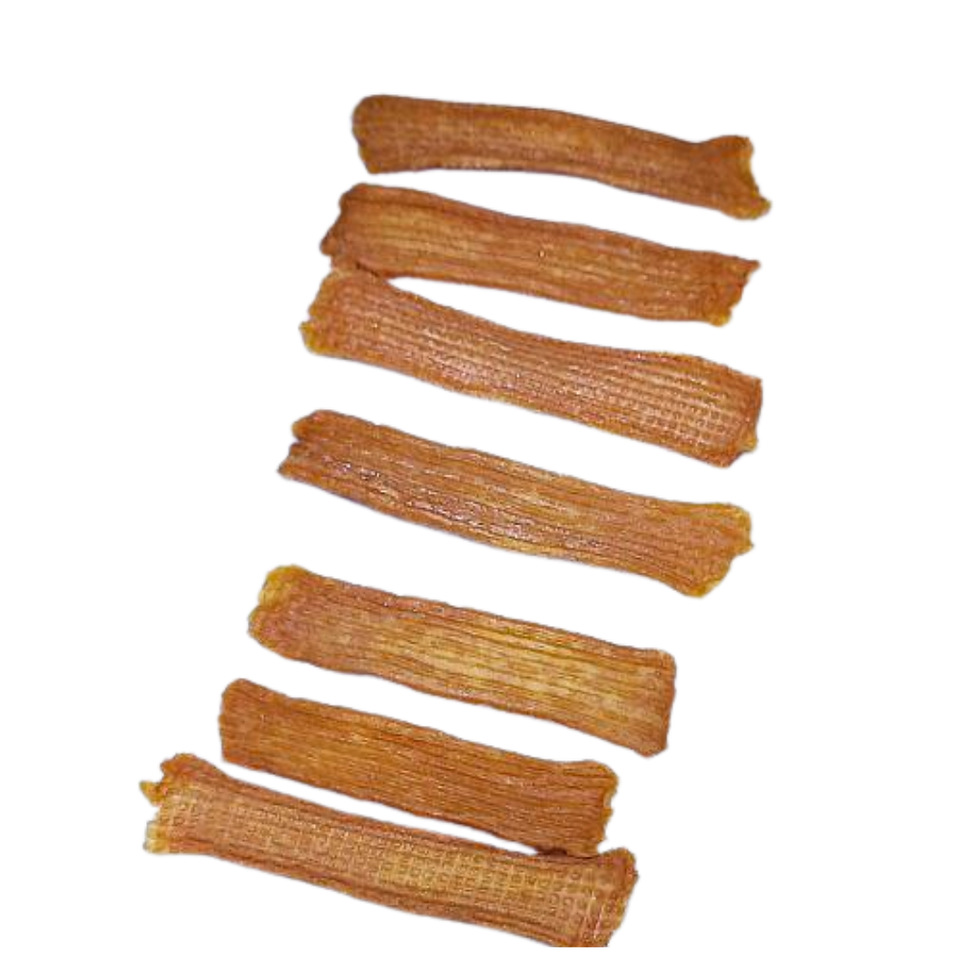24 cubes of 100% frozen homemade Milk Kefir (at least 300g)
Only available via self-collection or same-day courier (3 hours)
Same-day collection refers to courier pick-up and delivery within the same day,
Made fresh upon order, requires at least 2 days' lead time upon order.
Easily and conveniently pop a cube for daily feeding, can be consumed frozen or thawed, probiotics work best between 18° - 28°C
Handcrafted locally in our own kitchen and fed to our own precious furby. Containers and utensils are properly sanitised between batches.
Our gut is like the roots of those trees and plants. It is where we extract and absorb all the nutrients our body needs to nourish itself.” - Dr Alejundro Junger Bad digestion is at the root of all evil & death sits in the bowels - Hippocrates, the father of medicine Milk kefir is fermented from kefir grains which are a combination of lactic acid bacteria and yeasts in a matrix of proteins, lipids and sugars. Milk kefir grains are made up of a colony of (thousands) of living microorganisms that act in symbiosis, to maintain a balanced microflora of good bacterias and yeasts. Kefir contains large numbers of probiotics – the microbes that live in our bodies and provide us with important health benefits such as boosting immunity, calming inflammation, assisting in digestion, creating amino acids and vitamins, and aiding in digestion. Kefir also contains partially digested proteins, enzymes (including lactase, which is good for people who are lactose intolerant), vitamins (A, B1, B3, B9/folate, B12, D and vitamin K), minerals and essential amino acids. Along with the probiotics, it is high in bioavailable vitamins and minerals such as B-12, vitamin K2, folate, calcium, magnesium, zinc, phosphorus and several others. Recent research also indicates that probiotics may offer anti-cancer benefits. A few strains of bacteria used to formulate probiotics appear to stimulate anti-cancer chemical production while theL. casei strain may lower the risk of bladder cancer in dog breeds prone to this kind of cancer. Milk kefir comprises of approx. twenty different strains of lactobacilli, approx. thirty types of yeast strands, a dozen or more strands of streptococci and lactococci, enterococci, acetobacter and other strains of bacteria like bacillus sp. However, each bacterial and yeast composition, is unique and can vary from one strain to the next. As a comparison, yoghurt usually contains 1 to 4 strains. Every batch of Milk Kefir is unique and is made up of a living colony of bacteria based on its surrounding environment. Fermentation is not something that can be standardized. However, rest assured that the acidic environment found in Milk Kefir, provide a natural environment to protect against any harmful pathogens. Some studies have shown kefir to ward off salmonella and E. Coli as well as having the capability to kill H. Pylori Kefir may contain up to 61 different microorganisms, making it a much more potent source of probiotics than many other fermented dairy products. This includes the probiotic Lactobacillus kefiri, which is unique to kefir. Studies demonstrate that this probiotic can inhibit the growth of various harmful bacteria, including Salmonella, Helicobacter pylori and E. coli. Kefir contains several major strains of friendly bacteria not commonly found in yogurt such as Lactobacillus Caucasus, Leuconostoc, Acetobacter species, and Streptococcus species. It also contains beneficial yeasts, such as Saccharomyces kefir and Torula kefir, which control and eliminate destructive pathogenic yeasts in the body. A must add after the use of antibiotics to restore balance to your pet’s digestive tract. Due to imbalance of natural flora in your pet’s body during a yeast infection, kefir can help in the rebalancing effort. Most diseases begin in the digestive system, including physical and mental disease. Once you heal your furby's gut, their digestive system will begin to work properly again and disease symptoms will begin to resolve. Kefir is a great place to start
Keep frozen, until 10mins before feeding
Store in freezer - consume within 3 months
Cow Milk Kefir
Please note
As always: variation, moderation and balance! Kefir is very safe, this is not to say that some people or pets don’t react negatively to kefir, especially when first trying it. When introducing kefir to your pets, remember to always go slow.
Give your pet’s system time to adjust. For the first few days to a week try half the recommended dosages. This will avoid digestive upset as your pet’s system adjusts to the increase of good flora in their GI tract.
Recommended daily intake
Cats: 1 tsp / 1 cube
1 - 5kg dogs: 1 cube
6 - 10kg dogs: 1 - 2 cubes
11 - 15kg dogs: 2 cubes
16kg and above: 3 cubes
Metal Bowls?
Metal is generally detrimental to kefir. We do not recommend feeding kefir in a metal bowl or allow the kefir to come into contact with metal.

















